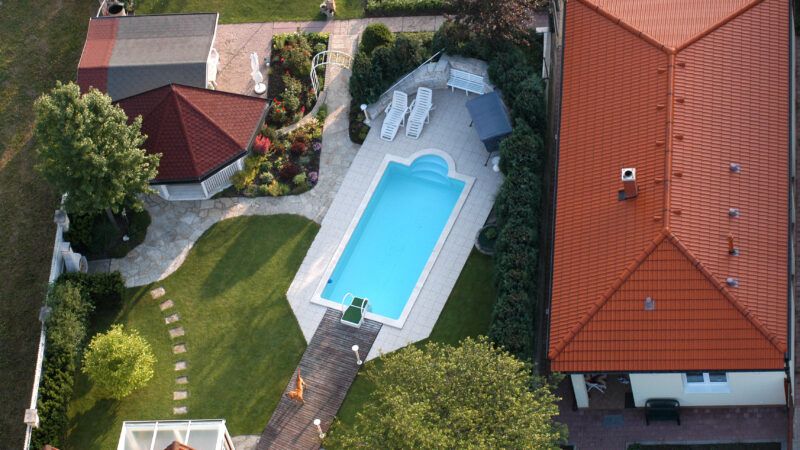Artificial Intelligence Helps French Tax Authorities Find Thousands of Untaxed Swimming Pools
When taxing authorities get more resources and power, they will find ways to make everyone pay more.

Using aerial photos and artificial intelligence, French tax officials have reportedly identified more than 20,000 previously untaxed residential swimming pools—potentially netting the French government a windfall of more than 10 million euros ($10 million).
And that total likely represents only a fraction of the cheese-eating tax cheats out there. According to The New York Times, the photo-scanning A.I. tool developed in tandem by a French IT firm and Google has been deployed so far in just nine of the county's 96 administrative districts. But it has been so successful that French officials are planning a national effort in the coming months.
Swimming pools matter because the French property tax system is based on the theoretical rental value of a home and its surrounding lands. That means building additions to your house or improving the grounds—for example by adding a pool—can come with a costly tax bill. According to Ars Technica, a new pool adds about 200 euros to the average French property tax coffers. The General Directorate of Public Finance—their IRS equivalent—believes it could collect as much as 40 million euros in additional taxes when the A.I. tool is deployed across the rest of the country, per The Verge.
Because this is France, a lot of the political controversy stirred up by the use of aerial photos and A.I. to detect untaxed pools is not for the reasons you might expect—or perhaps exactly for the reasons you'd expect: The Times reports that the unions representing French tax collectors are opposed to the effort, fearing that it will "replace field work by tax collectors and surveyors" with algorithms.
Ars Technica notes that the French firm that developed the software is facing criticism for contracting with Google.
A more efficient tax collection service that requires fewer bureaucrats isn't necessarily bad. And Americans don't have to worry about getting a bigger federal tax bill if they improve the value of their property (though property taxes do fund other levels of government). But even if the IRS won't be spying on our backyards in the hopes of charging us extra next year, there's a warning here about what happens when you give tax cops more resources and more power: Lots of people end up having to pay more in taxes.
The expected 87,000 new agents that the IRS will hire thanks to the recently passed Inflation Reduction Act won't be literally sorting through photos of Americans' backyards, but they will be sorting through Americans' financial backyards. Despite what Democrats (and compliant media "fact checkers") claimed in the run-up to the bill's passage, there is little reason to believe the enhanced tax scrutiny will be focused exclusively on Americans earning more than $400,000. In fact, about half of the so-called "tax gap" that the bill envisions closing would have to come from Americans earning less than $200,000 annually, according to a Joint Committee on Taxation analysis.
Bigger tax authorities operating with more powerful technology will translate into higher tax bills for the poor suckers unlucky enough to live under those regimes. That's true whether your "tax crime" is having an unreported swimming pool or filling out the wrong form at your bank.


Show Comments (39)